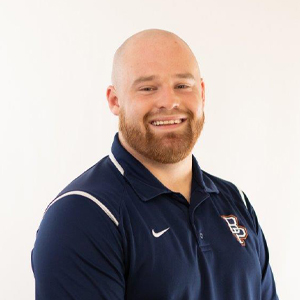Education
Overview
A minor in Education will supply students with a basic understanding of how people learn and how to best teach them. The interdisciplinary courses offered will teach and equip students to work in classroom settings. Students will learn the fundamentals principles of teaching all different types of individuals from all different backgrounds.
Courses
Below is a list of courses that are required to earn a minor in Education. Take a look at the list below to help give you an idea of classes within this program. Be sure to review the official requirements in the Academic Catalog.
Note: This list is intended to give you a glimpse into the program’s academic offerings, and should not be used as a guide for course selection or academic advising.
Required Courses
EDU 201 Investigating Critical & Contemporary Issues in Education Credit Hours: 3
This course examines various aspects of the historical, philosophical, cultural, legal, and ethical foundations of education as well as provides information relative to the construction of electronic portfolios and education program transitions. Field experience process is learned through guided practice of online classroom observations.
EDU 221 Exploring Teaching and Learning Credit Hours: 3
This course explores key aspects of learning and teaching through examining your own learning processes and those of others with the goal of applying your knowledge to enhance the learning of all students in a variety of educational settings and contexts. A focus on how to design and organize instructional activities that support the developmental movement, creative expression, good health, and well-being among students is also explored.
EDU 323 Technology, Assessment, and Data Analysis for Educators Credit Hours: 3
This course is designed for education program teacher candidates to understand the goals, benefits, and uses of assessment, including its interpretation and use in the development of appropriate learner goals. Additionally, candidates will explore the use of technology for instructional purposes as well as collection, analysis, and evidence-based educational decisions to inform instruction and address learning differences.
EDU 327 Introduction to Differences in Learners Credit hours: 3
This course introduces the various differences in learning styles and best practices for accomodation. Candidates will learn to identify learning differences and how to adjust accordingly.
EDU 337 Teaching Exceptional Children Credit Hours: 3
This course is an introductory course that examines all areas of exceptionalities including the characteristics of exceptional students and the educational implications of these characteristics. An emphasis is placed on differentiating a lesson for exceptional learners. Field experience is required.
PSY 306 Learning and Cognition Credit Hours: 3
This course is a study of learning theory and cognitive science, including topics such as classical and operant conditioning and modeling; information-processing approaches to perception; language acquisition and reading semantics; concept formation and application, memory, problem-solving, and creativity.
Prerequisite: PSY 201
OR
PSY 357 Educational Psychology Credit Hours: 3
Learners in this course gain knowledge of psychological theories and research as applied to the development and learning in educational contexts, including behavioral, cognitive, and constructivist theories. This course examines the theoretical and applied aspects of learning, motivation, human development, personality, assessment, and evaluation in educational settings. Corresponding implications for effective teaching will be discussed.
Prerequisite: PSY 201


